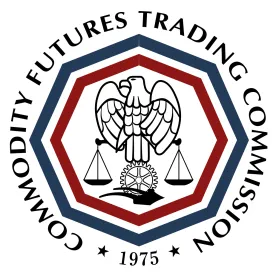A three-judge panel for the U.S. Court of Appeals for the Ninth Circuit recently issued a decision that revives claims by the Commodity Futures Trading Commission (CFTC) that Monex Deposit Company and two affiliates (Monex) violated the Commodity Exchange Act (CEA) by engaging in an alleged scheme to defraud investors in precious medals. CFTC v. Monex, No. 18-55815 (9th Cir. 2019). While the opinion is expressly limited to leveraged retail commodity transactions, the CFTC is likely to interpret the opinion broadly to apply to all CFTC-regulated markets.
Most relevant to parties trading (non-leveraged) commodities in interstate commerce, the three-judge panel relied upon the plain language of CEA §6(c)(1) to interpret the CFTC’s anti-manipulation authority to not be limited to allegations of market manipulation but also to reach allegations of stand-alone fraud (i.e., fraud in the absence of market manipulation), at least in the context of the sale of leveraged commodities. This interpretation could encourage the CFTC to continue to expand its regulation of commodities in interstate commerce beyond the traditional scope of the agency’s authority.
The Complaint
By way of background, in a September 2017 Complaint, the CFTC accused Monex of “defrauding thousands of retail customers nationwide out of hundreds of millions of dollars, while executing thousands of illegal, off-exchange leveraged commodity transactions” involving precious metals. The allegations centered around assertions that Monex made “false or materially misleading claims” about the profitability of transacting in its trading program (referred to as Atlas) while knowing that the program usually resulted in customers losing money because Monex acted as the counterparty to all Atlas transactions and profited from “outsized price spreads, commissions, interest on loans, and administrative fees.”
The CFTC alleged three counts based upon the theory that Monex’s activities were subject to the CFTC’s registration requirements and related regulations generally applicable to futures contracts (and certain leveraged commodity transactions). Specifically, Count I alleged the transactions constituted off-exchange transactions in violation of Section 4(a) of the CEA. Count II alleged fraud in violation of Sections 4b(a)(2)(A) and (C) of the CEA, which applies to sales of futures contracts but also extends to certain leveraged commodity transactions. Count IV further alleged that Monex violated Section 4d of the CEA for failing to register as a futures commission merchant while engaging in soliciting or accepting orders for leveraged retail commodity transactions. Each of these counts depends upon a finding that the transactions at issue are leveraged retail commodity transactions subject to the CEA as if they were futures (pursuant to Section 2(c)(2)(D)(iii) of the Act).
As what likely amounted to a fallback position (or piling on), the CFTC also alleged as Count III that the conduct violated Section 6(c)(1) of the CEA, which generally prohibits market manipulation. Because Section 6(c)(1) prohibits “any manipulative or deceptive device or contrivance” in connection with a futures, swaps, or commodity in interstate commerce (whether leveraged or not), the CFTC could argue that this claim should survive even if the court concluded that the transactions were not leveraged retail commodity transactions subject to Sections 4(a), 4b(a)(2), and 4d.
District Court Decision
The Defendants successfully moved to dismiss all four counts, claiming to be exempt from the CFTC’s jurisdiction over leveraged retail commodity transactions and also claiming that the CFTC’s anti-manipulation authority was limited to fraudulent schemes to manipulate and did not reach stand-alone fraud. U.S. Commodity Futures Trading Comm’n v. Monex, 311 F. Supp. 3d 1173, 1183-89 (C.D. Cal. 2018).
The district court’s dismissal focused largely on whether “actual delivery” of precious metals had occurred consistent with the CEA’s exclusion for spot sales with actual delivery occurring within 28 days. Specifically, having determined that actual delivery had occurred, the district court found that the transactions were excluded from CFTC jurisdiction and dismissed Counts I (alleging off-exchange transactions), II (alleging fraud in violation of CEA § 4b(a)(2)), and IV (alleging a failure to register) of CFTC’s Complaint. The district court also dismissed Count III (alleging fraud in violation of CEA § 6(c)(1)) because it determined CEA § 6 allows the CFTC to bring only fraud-based manipulation claims—not standalone fraud claims; the district court held that “any manipulative or deceptive device” in § 6(c)(1) requires manipulative and fraudulent behavior. Because the CFTC alleged only fraud—and not manipulation—the court held Count III failed as a matter of law. The CFTC appealed the decision to the Ninth Circuit.
Ninth Circuit Decision
A three-judge panel of the Ninth Circuit sided with the CFTC on both issues. First, it concluded that actual delivery had not occurred, which meant the transactions were subject to CFTC jurisdiction over leveraged retail commodity transactions. Second, the panel found that stand-alone fraud is prohibited by Section 6(c)(1).
-
Actual Delivery (Counts I, II, and IV)
On appeal, the Ninth Circuit examined whether and how actual delivery was achieved. The court stated that actual delivery requires at least “some meaningful degree of possession or control” over the commodity by the customer. The court noted this exception could hypothetically be satisfied “when the commodity sat in a third-party depository” but not where, as here, “metals were in the broker’s chosen depository, never exchanged hands, are subject to the broker’s exclusive control, and customers had no substantial, non-contingent interests.” The court held that the Defendants’ delivery of metal to its customers in this manner “amounts to sham delivery, not actual delivery.” Because actual delivery had not occurred, the panel concluded that the CEA exclusion for spot transactions did not apply, and the district court erred in dismissing Counts I, II, and IV.
-
Anti-Manipulation and/or Fraud (Count III)
The panel also reversed the district court’s dismissal of Count III, which alleged fraud in violation of CEA § 6(c)(1). Relying primarily on the plain language of the statute, the panel concluded that fraud alone is sufficient to sustain a claim that Monex violated Section 6(c)(1) and that the fraud allegation need not include any allegation of market manipulation. Specifically, it found no reason to interpret “any manipulative or deceptive device” as “any manipulative [and] deceptive device.”
Monex argued that expanding CFTC authority to cover fraud in the absence of manipulation in all commodity sales in interstate commerce would be a significant departure from the CFTC’s long-established regulatory regime. It suggested that such a broad interpretation would subject ordinary retail cash commodity sales, such as everyday grocery sales, to the CFTC’s enforcement authority. To this, the panel responded, “The question we address is only whether § 6(c)(1) [] applies to stand-alone fraud claims in the sale of leveraged commodities. Whether the statute extends to non-leveraged sales is not before us.”
Superficially, the Monex decision may appear at odds with the 2015 U.S. District Court Decision in CFTC v. Kraft Foods, 153 F. Supp. 3d 996, 1010 (N.D. Ill. 2015), in which the court held that allegations of market manipulation pursuant to Section 6(c)(1) require fraud (as contrasted with Monex where the panel held allegations of fraud do not require market manipulation). However, the two decisions are not inconsistent. Monex relied only on the plain language of the statute to determine that it prohibits both fraud and manipulation. Read in isolation, Monex could be read to support the proposition that Section 6(c)(1) not only prohibits fraud without manipulation but it also prohibits manipulation in the absence of fraud.
However, as Kraft highlighted, Section 6(c)(1) is limited by CFTC Rule 180.1, which further develops the scope of the CFTC’s anti-manipulation authority and imposes a fraud requirement for any allegation brought pursuant to Section 6(c)(1). Although Kraft did not address whether Section 6(c)(1) prohibits fraud in the absence of manipulation, reading the provision in connection with CFTC Rule 180.1, Kraft paraphrased the requirements of Section 6(c)(1) in a manner entirely consistent with the panel decision in Monex, in the sense that both cases required fraud. Specifically, the Kraft court concluded that the “only reasonable understanding” of the phrase “any manipulative device, scheme, or artifice to defraud” found in Rule 180.1 is that “the [CEA] prohibits (1) the use of manipulative devices to defraud; (2) the use of schemes to defraud; and (3) the use of artifices to defraud.” In this way, Kraft required fraud to bring a manipulation claim (“the use of manipulative devices to defraud”), but Kraft did not suggest that manipulation was necessary to sustain a fraud claim. In fact, Kraft’s interpretation would appear to lead to the exact same conclusion reached in Monex.
Expanding CFTC Authority
Although the Ninth Circuit expressly limited the decision to leveraged commodity transactions, because the panel’s interpretation was based primarily on the plain language of the statute, it is likely that the CFTC will argue that this interpretation extends to all § 6(c)(1) claims, including any fraud claims involving a futures contract, swap, or any sale of a commodity in interstate commerce. Whereas Section 4b already clearly prohibits stand-alone fraud in connection with swaps and futures contracts (and certain leveraged or margined transactions), expanding CFTC authority under Section 6(c)(1) to include stand-alone fraud in connection with “commodities in interstate commerce” would significantly increase the CFTC’s authority beyond its core mission of regulating futures and swaps markets and protecting price discovery in related cash commodity markets.
To date, the CFTC has argued for virtually unlimited anti-fraud authority to reach conduct closely related to its core mission; in both the Monex case and the series of cryptocurrency cases brought by the CFTC, the alleged fraud has involved defrauding investors in markets likely indistinguishable by the investors from CFTC markets. However, the arguments made by the CFTC, if accepted without limitation, would vastly expand the scope of its jurisdiction into markets completely unrelated to its core mission. Under the CFTC’s interpretation of its anti-fraud authority and the definition of commodity, it appears that the only obstacle to the CFTC bringing fraud claims against the grocery store fraudster is self-restraint.
If courts continue to interpret 6(c)(1) consistent with Kraft and Monex, and apply that same interpretation in the context of commodities in interstate commerce, then the only legal constraint standing between the CFTC and any and every fraud in interstate commerce may be the definition of “commodity.” By interpreting “commodity” to only include the underlying commodity for existing futures contracts, courts could at least limit the CFTC to policing conduct related to the markets central to its core mission.
Compliance Takeaways
Monex stands for the proposition that the Section 6(c)(1) reaches all fraud even in the absence of market manipulation. Because fraud of any kind is incompatible with a culture of compliance, this decision has limited value for prospective compliance efforts and is primarily relevant for ex-post litigation. However, because the decision may encourage the CFTC to look for pure fraud in physical commodity markets separate and apart from manipulation, market participants will be wise to treat Section 6(c)(1) as an expansive prohibition both in futures and swaps markets but also in connection with commodities in interstate commerce.





 />i
/>i


